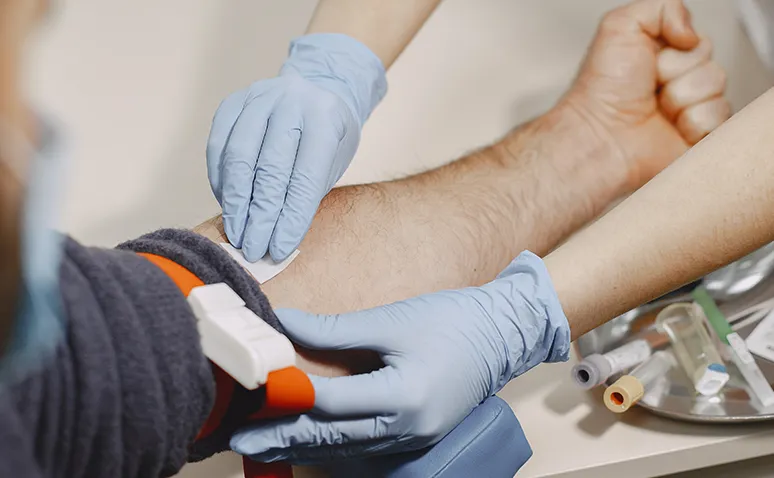Leg weakness can be a recurring issue that disrupts daily life and does not improve with rest. Although it is often confused with temporary fatigue, in some cases it may signal more serious health problems. Therefore, persistent weakness should definitely be evaluated.
Leg weakness may be associated with nervous system disorders, vitamin deficiencies, circulatory problems, or chronic illnesses. In particular, vitamin B12 and D deficiencies can impair muscle function and intensify the feeling of fatigue. Diseases such as diabetes, thyroid disorders, or anemia may also cause this condition. Medical support should be sought for ongoing complaints.
What Causes Leg Weakness?

Leg weakness is a condition that can negatively affect daily life and arise from various causes. While it may sometimes be linked to tiredness, it can also be a sign of underlying serious illnesses. Especially in long-term cases, early diagnosis can significantly increase treatment success.
Some individuals may experience imbalance or difficulty climbing stairs along with leg weakness. These symptoms might indicate weakness in the muscular system or suggest issues in nerve conduction. People experiencing progressive strength loss should consult a specialist without delay.
Factors that may cause leg weakness include:
- Prolonged inactivity or sedentary work
- Vitamin and mineral deficiencies (especially B12 and D vitamins)
- Muscle or nerve injuries
- Nervous system diseases (e.g., MS, neuropathy)
- Infections or immune system disorders
In some cases, these complaints may also be linked to chronic conditions. Diabetes, thyroid dysfunction, or heart disease may affect circulation and nerve transmission in the legs, leading to weakness. Diabetic neuropathy, in particular, can damage nerve endings, causing sensory loss and muscle weakness.
When leg weakness and fatigue occur together, they can significantly limit a person’s mobility. These symptoms should not be ignored; a thorough evaluation is needed to investigate underlying causes. With proper treatment under professional supervision, quality of life can be greatly improved.
How to Relieve Leg Weakness?
Leg weakness arises when muscles fail to function properly, adversely affecting mobility. To relieve this condition, the underlying cause must first be identified. Once diagnosed, an appropriate treatment plan is created to reduce weakness and prevent complications.
Exercise, nutrition, and medical support form the foundation of this process. Approaches that support muscle and nerve health offer effective results in combating weakness.
Here are some methods that help strengthen leg muscles:
- Regular exercise: Strengthening exercises under the guidance of a physical therapist
- Healthy nutrition: Consuming foods rich in protein, vitamin B12, and magnesium
- Physical therapy and rehabilitation: Specialist-led exercises targeting specific muscle groups
- Regulating stress and sleep: Helps the nervous and muscular systems recover
- Medication: Supportive drugs prescribed by a doctor when necessary
The feeling of weakness in the legs may be temporary or become progressively worse over time. With appropriate methods, daily life quality can be significantly enhanced.
What Tests Are Done for Leg Weakness?
To determine the cause of leg weakness, a thorough clinical evaluation and some diagnostic tests may be necessary. After listening to the patient’s medical history and completing a physical exam, the doctor may request various tests depending on the origin of the complaint.
Typically, the following tests are performed:
- Blood tests: Used to examine levels of vitamin D, vitamin B12, iron, thyroid hormones, and signs of infection. Any deficiencies or abnormalities help guide the diagnosis.
- Electromyography (EMG): Measures electrical conduction between muscles and nerves. It’s especially preferred if nerve-related weakness is suspected.
- Magnetic resonance imaging (MRI) or CT scans: Detect structural issues such as spinal compression, hernias, or abnormalities.
- Muscle enzyme tests: Measure enzyme levels that may indicate muscle breakdown or muscle-related diseases. These are important in diagnosing conditions like myopathy.

Test selection is personalized according to accompanying symptoms and the physician’s clinical judgment. In this process, not only lab results but also the patient’s lifestyle, medical history, and risk factors are taken into account for a holistic approach.
Neurological conditions, muscle disorders, vascular blockages, or chronic diseases like diabetes may present with this symptom.
Muscle exercises, balanced nutrition, adequate sleep, and physical therapy if necessary can aid recovery.
Deficiencies in vitamin B12, vitamin D, and folic acid may play a role in these symptoms.
Consulting a neurologist, physical medicine and rehabilitation specialist, or internal medicine doctor is appropriate.
For a detailed assessment and necessary tests for the weakness in your legs, you can contact Denge Tıp.











